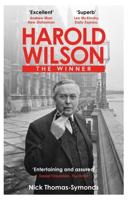Publisher's Synopsis
Franklin D. Roosevelt, often referred to as FDR, was the 32nd President of the United States and one of the most influential figures in American history. He served an unprecedented four terms in office from 1933 to 1945, leading the country through some of its most challenging times, including the Great Depression and World War II. Roosevelt's presidency marked a transformative period in American politics and ushered in significant changes in economic, social, and foreign policies.
Born on January 30, 1882, in Hyde Park, New York, Roosevelt came from a wealthy and politically connected family. He attended Harvard University and later Columbia Law School, although he was more interested in politics than a legal career. In 1910, he entered politics and was elected to the New York State Senate, where he quickly gained recognition for his progressive views and reform-minded agenda.
Roosevelt's political career took a dramatic turn in 1921 when he contracted polio, which left him partially paralyzed from the waist down. Despite his physical limitations, Roosevelt remained active in politics and became Governor of New York in 1929. It was during his time as governor that he developed many of the policies and ideas that would later shape his presidency.
In 1932, in the midst of the Great Depression, Roosevelt was elected President of the United States. He implemented a series of bold and innovative programs known as the New Deal to combat the economic crisis. The New Deal included measures such as financial reforms, job creation programs, infrastructure projects, and social welfare initiatives aimed at providing relief, recovery, and reform.
Roosevelt's leadership during World War II was equally significant. Following the attack on Pearl Harbor in 1941, the United States entered the war, and Roosevelt guided the nation's efforts as Commander-in-Chief. He worked closely with Allied leaders, including Winston Churchill and Joseph Stalin, to develop military strategies and ensure the success of the war effort. Roosevelt's leadership and diplomatic skills played a crucial role in shaping the post-war world and the establishment of international organizations like the United Nations.
Roosevelt's presidency had a profound and lasting impact on American society. His policies and programs helped to alleviate the worst effects of the Great Depression and laid the foundation for a more robust and regulated economy. The New Deal reforms, including Social Security and labor protections, transformed the role of the federal government in the lives of Americans and contributed to the growth of the modern welfare state.
Furthermore, Roosevelt's leadership during World War II solidified the United States' position as a global superpower and set the stage for the post-war era. His vision of international cooperation and the establishment of the United Nations aimed to prevent future global conflicts and promote peace and stability.
Franklin D. Roosevelt's presidency and leadership style continue to be studied and debated. While some critics argue that his policies expanded the role of government too far, others credit him with saving the country from economic collapse and leading it to victory in World War II. Regardless of individual perspectives, Roosevelt's legacy as a transformative president and his ability to inspire hope and confidence in the American people during times of crisis remain enduring aspects of his political and historical significance.








